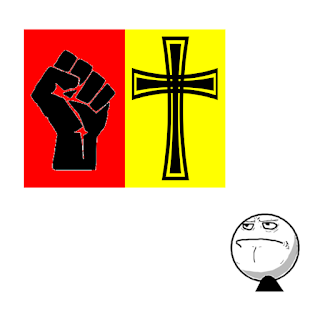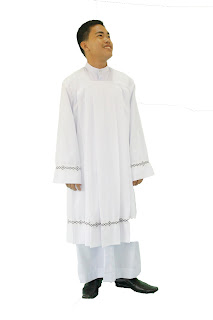MARXISM AND CHRISTIANITY: CAUGHT BETWEEN TWO STOOLS
“The first requisite for the happiness of
the people is the abolition of religion.”- Karl Marx
And
the multitude of them that believed were of one heart and of one soul… but they
had all things common. cf. Acts 4:32
Karl Marx and Frederick Engels saw Capitalism as an
exploitation to the “working people” or the proletariat. There, they called for
a revolutionary reformation with the existing socio-economic structure to
‘overthrow’ the bourgeoisie. Here, they termed it Marxism. As a process of
class conflict and revolutionary struggle, Marxism is an undertaking that will
result in victory for the proletariat and the establishment of a communist
society and abolishment of private ownership. Engels eulogized Marxism in this
way, “men must first all eat, drink, have shelter and clothing before they can
pursue politics, science, art, religion and the like.”
Christianity, on the
other hand, is the religion of the Word of God, ‘not a written word unable to
speak, but the incarnate and living Word.’ Instituted by Christ himself,
Christianity later became the state religion in the most of the countries in
the early Europe. Christians depend on scriptures and teachings of the church.
Jesus, in the scriptures, asserted the opposite disavowing that faith is
predicted on bodily well-being, “Therefore do not worry, saying ‘What shall we
eat?’ or ‘What shall we drink’ or ‘What shall we wear?’…but seek first the
kingdom of God and his righteousness.“ The history of the Church according to the Book of Apostles
reveals that it had its own Christian communism and the faithful held
everything common. Even now, this Christian communism exists in the form of
monasticism. Both the concept and reality of communal property is a bright,
idealistically elevated type of Christian inter-relationship, examples of which
have always existed in the Latin and Orthodox Church.
Christianity’s
biblical doctrine and Marxism’s The
Communism Manifesto theory diverge still further. Christians seen as
believers of the spiritual goods while the Marxist is in the stance of
dialectical materialism. Christianity explains in lumen Christi while Marxism entails materialist explanation for
everything. Pope Francis, on one of his interviews, stressed out that Communism
have stolen the flag; the flag of the poor is Christian. The Church believes
that she is the ‘church of the poor’ (for the proletariats) and not for the
bourgeoisie. But for Marxism, the Church and the Family are obstacle to Utopia. They stressed that the
hierarchal society affirmed in the scripture prevented the rise of the
proletariat; thus, “Religion is the sigh of the oppressed creature, the heart
of a heartless world, and the soul of soulless conditions. It is the opium of
the people.” How
great is the differences between such Christian communism and Marxism- communism.
One is as far from the other as the heavens are from the earth. I remembered in
my thesis entitled, The Political and Social Philosophy of St. Augustine, the
two opposing camps can be classified. For me, Christianity is the De Civitate Dei while the Communism-
Marxism is the De Civitate Terrena.
Though
diverse, these two camps of thought have same goal and end. Christianity and
Communism- Marxism aim for common state of life. They aim for the common good
of all. Christianity’s end is happiness, as St. Augustine said; my heart is
restless until it rest in you my God. Marxism, in contrast, similarly incorporates
the struggle of early Israelites as a class struggle in the coming victory of
the proletariats. Thus, Utopia represents heaven for Christianity while for
Marxists, it is the ideal state of life.
Though they have commonality, the
oposing camps are absolutely incompatible. Though they met commonality in their
starting and ending point, their means are contraidctory. Materialism proposed
by Marxist and Spirituality proposed by Christianity are in both extremes. The
former promotes personal responsibility and wise use of freedom while the
latter promotes personal autonomy. Indeed, they are totally opposing and
totally irreconcilable.
All
these cited differences and similarities between Christianity and communism do
not yet exhaust even the very essence of the contradiction and incompatibility
between them. The fundamental difference between communism and Christianity
lies deeper still, in the religious ideology of both camp. Yes, Indeed! I am
caught between two stools.



Comments
Post a Comment
How's your reading?